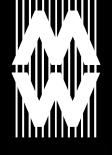
![]()
![]()
![]()
![]()
![]()
![]()
![]()
Archives & Museum Informatics
2008 Murray Ave.,
Suite D
Pittsburgh, PA
15217 USA
| Search A&MI |
Join our Mailing List.
Privacy.
Published: March 1999.

Paul Marty
Director of Information TechnologySpurlock Museum, University of Illinois
484 Lincoln Hall, 702 S. Wright St.
Urbana IL
61801 USA
Email: p-marty@uiuc.edu
http://www.spurlock.uiuc.edu
Paul F. Marty is a specialist in the application of advanced information technology to the study of history and, in particular, museum environments. He is currently the Director of Information Technology at the University of Illinois? Spurlock Museum (www.spurlock.uiuc.edu) and is responsible for the design, development, and implementation of advanced information systems at this museum. These systems manage the entire information flow of this growing university museum, maintain digital images and data on the 40,000 cultural and ethnographic artifacts in the museum?s collections, and control such internal operating procedures as registration, conservation, education, and collections management. He holds a BS in Computer Science Engineering, a BA in History, and an MA in Ancient History, all from the University of Illinois. He has studied Classics and Ancient History at King?s College, Cambridge University, and is currently pursuing a Ph.D. in Information Science through the Graduate School of Library and Information Science at the University of Illinois. His dissertation research is centered on an ongoing ethnographic study of the museum professionals at the Spurlock, whose roles and responsibilities in the preservation, dissemination, and interpretation of knowledge have been shaped and influenced by the integration of information technology into their unique environment. His academic projects encompass such topics as the implementation of computer-supported cooperative work in museum environments, the future directions of computer-mediated communication in museum-museum interactions, the impact of virtual museums on scholarly communication, user profiling in the on-line information retrieval of museum data, the potential of computer-supported cooperative learning for educational outreach from museums to schools, as well as the epistemological understanding of the nature of knowledge studies in museum environments.
Paul presented a close up look at On-line Exhibit Design: The Socio-Technological Impact of Building a Museum over the World Wide Web